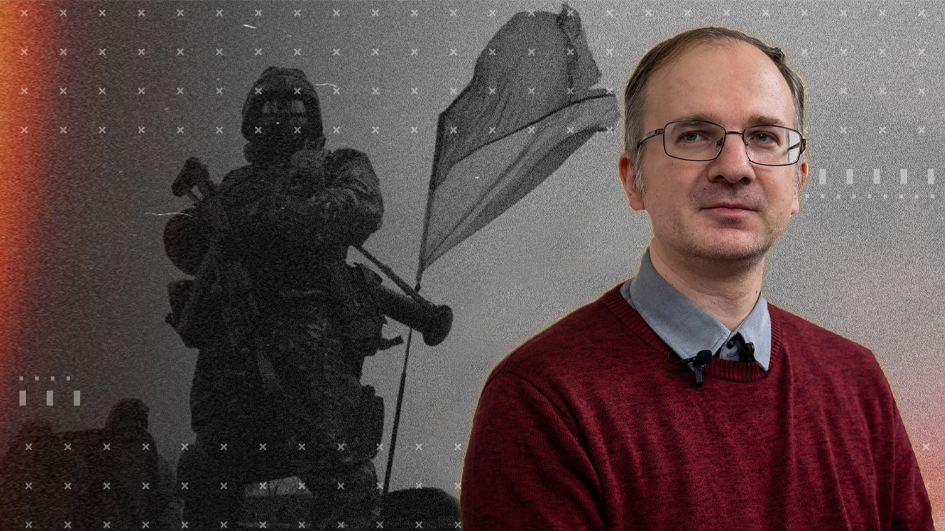
«Trust is gradually changing Ukrainians,» – sociology scholar Danylo Sudyn
[For urgent updates please follow Ukrainian Freedom News on Telegram]
Why are Russian and Ukrainian identities essentially at odds?
When we say «at odds,» a two-way process immediately comes to mind: the Russians don’t like us, and we don’t like them. But in fact, if you look at the research data before February 24, Ukrainians had a rather positive attitude towards Russians. Even Putin was considered a leader worthy of respect and trust, on par with Lukashenka. Obviously, it changed after February 24. But before that, the hatred used to be one-sided.
Is it because the Russians already had an established identity, and we are still in the process of forming it?
I’d rather say the opposite. Russians do not have a fixed identity, and this is a problem for them. Geoffrey Hosking, the British historian and researcher of the Soviet Union, said in 1995 in an attempt to understand Russia: «Britain had an empire, and Russia was an empire. Maybe, it still is.» Then there was still [a president] Yeltsin, faith in democracy, so he said cautiously, using «maybe.»
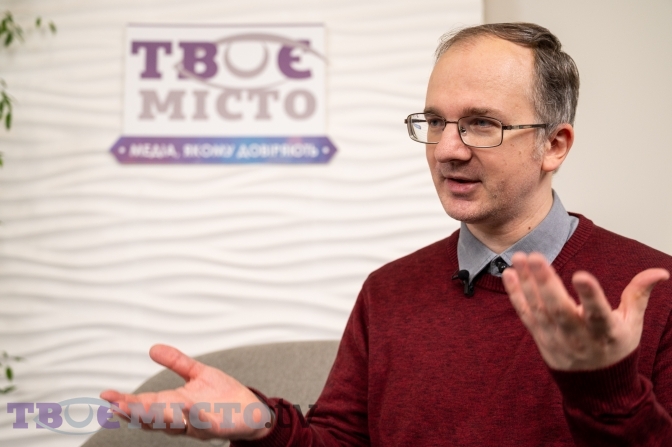
Britain as a nation formed itself before becoming an empire or beyond it, understanding where is core, and where there are colonies. Irish were the only unlucky ones, drawn into the orbit of British identity. Because of this, Ireland has been fighting for independence for centuries, and the Irish are still perceived as half-traitors.
Russia did not go through these processes of national identity formation and began to «catch it up» during the creation of its empire. How to unite everything that is part of Russia? Their Russian identity begins to «catch up» with this multi-ethnic empire, and because of this, there is no clear understanding of who they are. Look at these two concepts they use to describe themselves: if «russkiy» is about ethnicity, then «rossiyanin» is already about belonging to a certain political space. A Tajik who lives in Russia is certainly not a russkiy, but is he a rossiyanin? Here they are, the consequences of imperialism. Suddenly, it turned out that the empire had grown and formed – and for the Russians, everything became Russia, including Central Asia. Now, the fugitives from the mobilization are outraged, when in Kazakhstan they are forced to speak Kazakh. «We gave them the state,» – they say.
Read also: Today, no Ukrainian feels ashamed of the state. A talk with the sociologist
For Russians, the Baltic countries are not countries at all. Ukraine, in this case, resembles Ireland for the British. We were captured when the Russian national identity had not yet been formed. And now, when the Russians see that we are separate, they perceive it as a knife in their heart, because it’s allegedly «a part of their identity»
It is unlikely that people who lived on the territory of modern Ukraine 300 years ago identified themselves as Ukrainians.
This is a question for historians. But now we can speak about an early modern nation, when the political elite (in our territory, it was the nobility) was already aware of its Ukrainianness. Of course, no one did such educational work with the peasants, so they often did not know who they were, having their world limited by the local community. However, we have Prince Konstantyn Ostrozkyi, the formula of the Commonwealth of Nations «gente Rutheni, natione Poloni» (Ruthenians by origin, Poles by nation)...
This is how early modern nations differ from late modern or simply modern ones. This movement, this identity permeates all strata of the population: from workers and peasants to elites, intellectuals, and thus we understand that we are Ukrainians. In the 17th century, the nobility, the Cossacks, could understand this, but the rest could not identify it clearly.
Was Russia a metropolis, bringing its culture and civilization here? Or was it founded to a certain extent by natives of these lands, partially «fertilized» by the culture of Kyiv or Galicia-Volhynian tradition?
This is what makes the Russian empire and identity both vague and dangerous. Why? When the British came to India, they understood that it was India, not Britain. The Indians also understood this. So during the colonial existence, no Indian could build a career in the British ministry simply because he was not accepted as one of the compatriots. That is, there is a clear limit.
Read also: «If hate disappears, we’ll become indifferent like Russians,» – psychologist Natalia Pylat
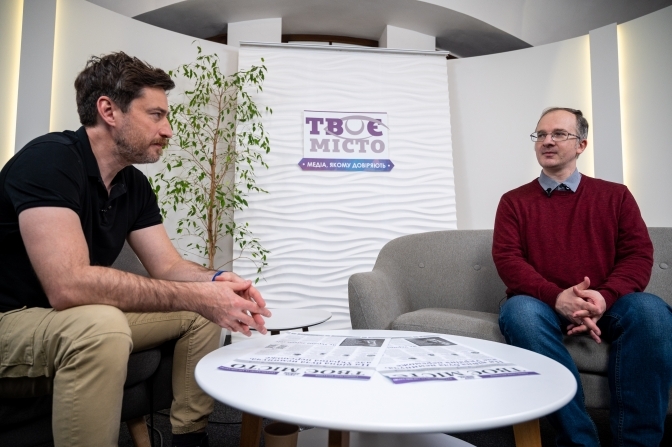
In the Muscovite tsardom, and therefore in the empire, this exchange took place very simply. In general, there is a version that the idea of Moscow as the Third Rome was invented by natives of Ukraine, the Ukrainian clergy, as a tool to encourage the tsar to protect Orthodoxy from Polish rule after the uprising of Ukrainian Hetman Bohdan Khmelnytskyi.
In the 18th century, many cultural and scientific pieces in the Moscow tsardom and the Russian empire were created by people from the Kyiv-Mohyla Academy. Russia did not bring culture to our territory: the western territories of the empire, namely Poland, Ukraine, and Belarus – actually had a richer cultural tradition. But Russia calmly accepted a native of Ukraine who could make a career in Moscow. Mykola Gogol is the last such example. He believed that it was possible to do this calmly and remain a Ukrainian. Because of this, there was a feeling that it all constituted Russia. That is why the Russians found it so difficult to let Ukraine go. When Yeltsin signed the agreement in Bialowieza Pushcha in 1991, he expected that in two or three years, Ukraine would ask to take it back [as part of Russia], because it wouldn’t manage to survive on its own. But we succeeded, and we are still developing quite successfully.
Is independent Ukraine an existential challenge for Russia? Either there’s no Ukraine, or, if it exists, there is no Russia?
Regarding the second part: Russia can exist without Ukraine, but for that, the Russian society should hold quite long discussions about the nature of Russian identity. We can mention another example of Poland, which considered Lviv its city for a long time. Still, there were Polish circles in emigration, Parisian culture, Jerzy Giedroyc, who advised: we must recognize that Lviv is a Ukrainian city, Vilnia (ancient name for Vilnius) is a Lithuanian city, and not fight among ourselves, but recognize that our enemy is the Russian Empire. He didn’t say that literally, this is my creative interpretation of his words. Here I am talking about the vision of Polish identity and the fact that it is not worth clinging to Lviv as a city of Polish glory. We should not continue to mention the wrongs, but move to the future.
This discussion has never taken place in Russia. Even after the revolution of 1917.
Perhaps Lev Gumilyov, who was shot by the Bolsheviks in the 1920s? He seems to have had an attempt…
We see the Russian oppositionists, the same Navalny who looked adequate in his position. But when the issue came to imperialism, it turned out that it was not so... Russian liberals and oppositionists do not think beyond the borders of the Russian Empire. When a unit was formed to fight the Putin regime, its soldiers were asked how they felt about Chechnya, Tatarstan [we are talking about the Legion of the Armed Forces of Russia «Freedom of Russia», consisting of Russian and Belarusian servicemen who defected to Ukraine.] The fighters answered that their enemy is Putin’s regime. Here is an example of thinking that Russia is an empire. But the peoples of the Russian Federation, which is no federation because it was and continues to be a centralized state, archaic entity – they do not understand this.
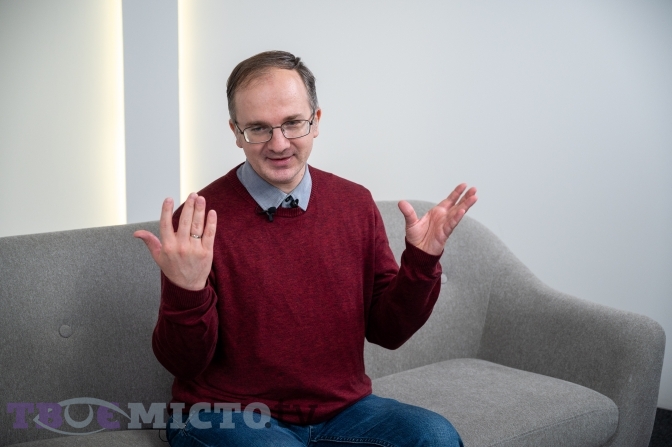
A discussion is not done in a day, and Giedroyc did not appear in Poland out of the blue. It lasted between national democrats and sympatics of Pilsudsky, there was a different vision of interwar Poland, even the same uprising of 1863 under the slogan «For our and your freedom»... We can say that the debate about whether Ukraine is Poland or Ukrainians is a separate nation lasted almost a hundred years. It was difficult, with retreats and defeats from the search for what Polish identity is.
Read also: «Wars begin due to the lack of nurture,» – Solomiya Chubai
This process did not take place in Russia. There, monarchists in 1917 and socialists are one space. And when the Ukrainians wanted to create their own socialist organization, they were told that everyone should merge into a single social-democratic workers’ party, because it is the only revolutionary front in the fight against tsarism. Even then, no one understood that separate national states existed. Lenin tried to do something through indigenization [politics of encouraging the nations of the Soviet Union to develop their culture], but it was more of a tactical move to calm the «outskirts» of the empire so that they would not «fall off». Stalin returned everything, and the idea about the leading role of the Russian people appeared again.
But the Russians have all the paraphernalia: tricolour, double-headed eagle... What else do they need?
Is it an attribute of a nation or an empire? A nation does not live in a vacuum, it is primarily a community of specific living people who speak a specific language, have a common culture, and therefore need their own state that will protect their national rights. Let’s look at Russia: they have things, symbols, but there are no people, no understanding of the value of human life, and this is the main problem. We don’t talk about it much. But after information about the first Russian war crimes in Ukraine appeared, everyone suddenly began to seek the reason. Everyone missed the fact that the Russian identity was never human-centred. Here is an example with the Holodomor: even if they recognize it, they counterbalance the fact that they succeeded in industrialization. That is, you can kill several million people and get something in return, build a strong state. This is a worrying symptom that their identity is tied to the state, it is the framework on which everything is built, not the community.
Relatively speaking, if the state of Ukraine disappears, then the Ukrainian nation still exists, Ukrainians will begin to fight for the Ukrainian state. Here you can mention the Ukrainian Insurgent Army during the Second World War, and not only. But it works because there is a community of people who feel connected to each other, and we need a state.
That is, for them, is it like some kind of cult, or worshiping something inanimate?
To some extent, yes. Needless to say, all Russians are zombies. It is a two-way process, and the authorities are quite interested in it. They are asked where the high salaries are, and they answers that Crimea is «finally ours». And people think that this is a norm, it’s possible to live [in that conditions]. Check out the annual military parades in Russia. They became a big holiday already after the collapse of the Soviet Union. They were introduced by Yeltsin in 1995, and since 2000, Putin also began to demonstrate the military equipment. When people are interested where their freedoms are, they are told that it’s all insignificant and urged to take a closer look at what kind of state they have. That is, the government instrumentalizes historical memory and national identity. When people ask questions that really matter to them, they get sidetracked.
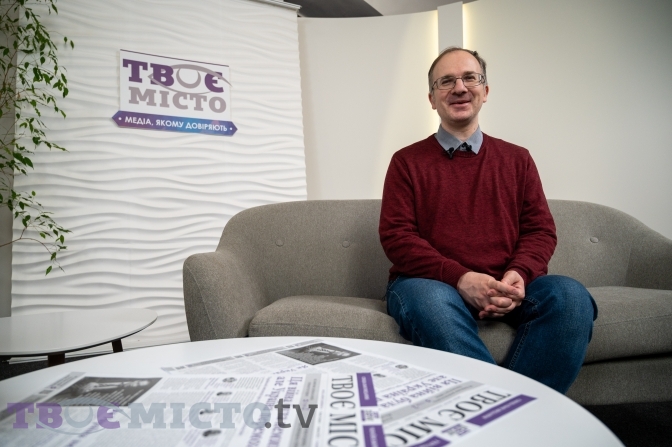
In the early 2000s, political scientists said that Putin made a certain covenant with the population: he gives people – Moscow and St. Petersburg residents – material wealth, but takes away all civil rights. Until recently, no one was summoned to the war in Ukraine from Moscow and St. Petersburg, but as soon as this started, it caused outrage. Everyone is crying that a lawyer from Moscow was mobilized and killed at the front in Ukraine, and this is a huge tragedy. But for some reason, they don’t care that someone from Buryatia died.
Everyone liked this arrangement. The government ruled the people as subjects in the Middle Ages, society accepted this and had a sense of defeat. In 1996, the American sociologist Rogers Brubaker wrote an article comparing Russia with Weimar Germany: it has lost land, there is economic ruin, sooner or later Hitler will come to power, who will want to annex neighbouring lands and protect «Volksdeutsche» – German-speaking people – outside the empire. And we see how Putin comes and implements this whole program. Why? Because the Russians felt secondary. Once upon a time, a Russian felt at home in any Soviet republic, spoke Russian, and everyone had to understand him. After the collapse of the USSR outside of Russia, they turned out to be ordinary citizens, and sometimes even had to learn the language of another republic in which they lived. It was a big blow both for the people and for Russia, which considered itself an empire that protects the whole world, and suddenly in 1991 it experienced being «cut off». People were waiting for a return to the empire, and the authorities gave it to them, having obtained for themselves an established vertical, where nothing can be solved without Putin.
Will Putin manage to make it all collapse into something like North Korea and stay in power until he dies?
There is the factor of the war with Ukraine, which undermines this regime. After their loud statements about referendums and annexation of territories, we see our real actions – blowing up a bridge, strikes on Crimean military bases. The television shows them one thing, and in social networks, people talk about another: that Putin is an insufficient patriot.
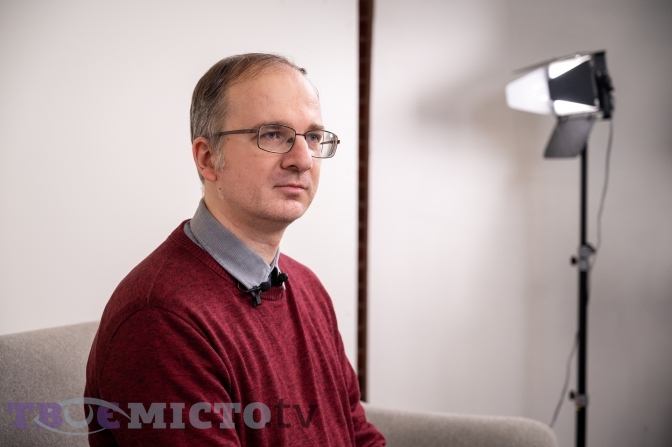
Would Russia be able to transform itself? Yes. The onlything is that Korea is small, so it tries not to attack its neighbours. Russia was able to convince the whole world that it has exclusive rights to determine the foreign policy of Georgia and Ukraine. Ukrainians said «no», and this is a challenge for Russia.
Revolutions in the Russian Empire began after the wars. There is a strain of all forces, the state appeals to the population, it must be thrown into battle until it turns out that the entire system is corrupt. People begin to ask uncomfortable questions, and a revolution begins.
Putin’s regime is beginning to falter. Will it fall? You should not be so optimistic, because he destroyed any opposition for 30 years. Khodorkovskyi was an oppositionist, he got out of prison and says almost the same thing as Putin. This is the purpose of their prisons – to break people.
Do not expect that Putin will have a competitor. In Nazi Germany, even after Hitler’s death, the party fought to the last. There is no counter-elite in Russia, this is the problem of their political culture, which demonstrates principles, not actions.
When Ukrainians are put in a police bus, we turn it over and let them all out [as it happened during the Revolution of Dignity]. When this happens to the Russians, they film everything and post on the Internet with comments about «police arbitrariness.» They came out against the regime, showing their moral rightness – that’s all, they are martyrs. And we have a different approach – to defeat the regime, because in prisons, you can’t do anything with moral rights.
How will this war change Ukrainians? We often hear about rebuilding, but aren’t we also risking to rebuild the bad?
Researchers say that institutions of representative democracy did not develop in post-colonial countries, because the colonizers did not need it. In the Soviet Union, everything was determined by the party, they voted for one candidate. Even if such institutions existed under the colonialists, after independence they did not know how to accept the surge of social activity. When these institutions are weak, the government is afraid that the social movement will destroy everything in general and begins to follow an authoritarian course. That is why in Russia, the tanks shot the building of the Parliament in 1993, supposedly to protect democracy and prevent communists. And the West accepted it, because for them, communists are evil.
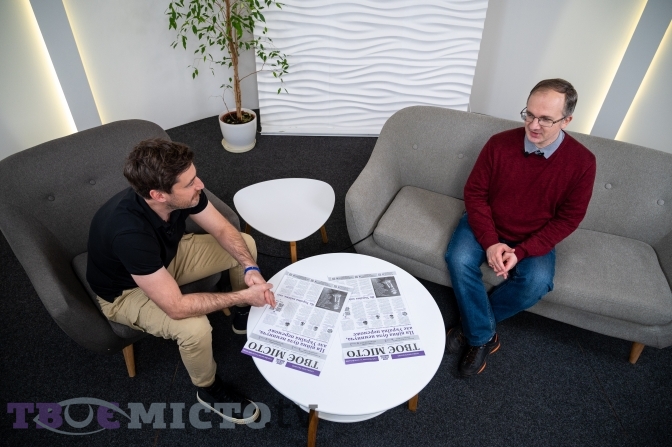
When the system has a margin of safety, it tries to contain the social movement within the existing institutions. In Ukraine, the political elites showed a sufficient margin of strength and agreed to try and see what would come of it. If we were to speed up the processes, it could lead to the radicalization of social strata, which would begin to destroy our institutions to the point of polarizing society.
Perhaps something could’ve been more intense, but... All post-Soviet countries, except for the Baltic states, Ukraine, Georgia, and Moldova, became authoritarian. We tried to move, but we were moving back and forth.
Regarding reconstruction and values: it’s not necessary that we will rebuild something bad. As the Nobel laureate in economics, Douglas North said, «values have a price». If you are against corruption, but to open a case you need to get a hundred certificates or pay a bribe, then, according to North, you will choose what has a lower price.
But can it be the other way around?
Yes. And now, Ukrainians are paying a terrible price for our country at the front – with their lives. Volunteers are torn between the vanguard and the rear, and those in the rear ask why there are no normal shelters. And this is important, because it is a question of what Ukraine will become. What they pay for with their lives, health, and safety. This aspect will change Ukrainian society, it will show how to treat the decisions of the authorities more carefully, to monitor what is being done, not just choose «good people».
People are paying a huge price, but they are already violating and will further violate the issues of not only housing and security, but also the protection of values and democracy. Right now, our values cease to be abstract and become concrete. In the conditions of war, we act as a united front, but after victory, the question will arise: what did we fight for?
The main thing is not to have inflated expectations. We will not make all the reforms at once. The institutes have their capacity. For example, we cannot change all judges at once: they must be studied first. Inflated expectations encourage the authorities to make quick populist decisions that have little effect. We need to start a process that will move smoothly but steadily, reforms that cannot be cancelled by one decision. It is similar to America: the president could make a decision a hundred years ago, another party is in power, but it is implemented.
Even before the war, high school students were asked about values. However, the questions were pretty indirect, and they gave answers in the Soviet spirit, such as «the end justifies the means.» Does this mean that the Ukrainian identity would be partially Soviet, or Russian?
First of all, it is worth remembering that values do not change instantly. The Soviet Union fell apart 31 years ago, but before that, people lived for decades under certain conditions and according to certain rules, following which they raised children.
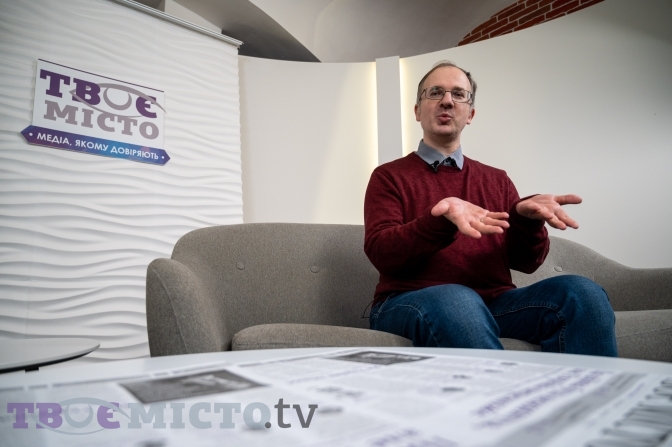
What is the difference between authoritarianism and totalitarianism? In the first case, all the power is in a small group of people, the rest can do whatever they want, the main thing is not to rush into politics. This is what Putin’s pact with the oligarchs was all about. Instead, totalitarianism permeates everyday life. In the USSR, people had to show admiration for power. Where was there to escape from those daily mantras about the tastiest filling and sausage, the most humane court? People understood that this was not true, but lived in it, and that duplicity remained at the level of unconscious behaviour. It is not worth expecting that we will change it two decades after independence.
Back to the survey: we ask about very abstract things. For example, what is lying in the name of good? Is it if we weren’t warned about the air alert when a missile might come, but the main thing is that we don’t panic? Or when we were billed for 10 hryvnias extra, and we did not say about it, so as not to worry all day?
Plus, teenagers who have never encountered such a thing in their life, for them it is like a task from a textbook. They will look for more complex explanations to appear more mature. Or, on the contrary, they will fall into maximalism. But we cannot predict how they will actually behave when faced with such a choice. In the end, the union fell apart, and people who were raised there opposed it.
Fortunately, people are independent. And the rejection of certain facts is the result of their conscious choice. This process will be long, but we are seeing changes that we did not have. For example, Ukrainians donate money to rent an American satellite. 20 years ago, we would have thought that Prytula just wanted to collect money for the foundation. And now, there is trust, which was absent in the USSR. There was always a feeling of a double bottom: that if I trust you, you will report on me. Trust began to form during the Revolution of Dignity, people donated money and medicine, in particular to the Medical Hundred of the Maidan. Someone tried to «disperse» the post that they bought cotteges with this money, but it did not spread, because the public said: «Give it a rest, they save lives!»
This trust gradually changes us and our behavior. Look at how many volunteer initiatives we have, how many volunteers went to the front in the first days. And now, remember how our army was perceived in the early 1990s: a hazing school where you would be broken. And here people voluntarily join the army. Why? Because their perception of it, the idea of its purpose, has changed.
In Russia, the army is still perceived as something to be avoided, particularly because of hazing. They used to have interesting studies about it, but under Putin’s regime, the army and hazing simply disappeared from sociology.
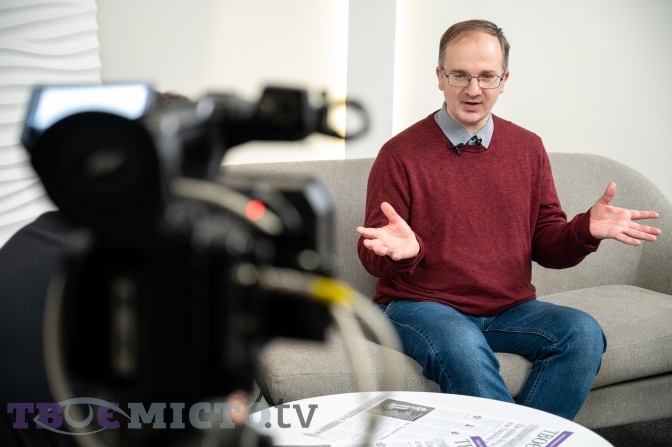
We have a situation with the cancellation of external examinations, which caused outrage, among students too. It would seem that it’s possible to «pass through». But everyone understood that these were fair rules of the game, that whoever studied, prepared, would enter a better university. Even 20 years ago, we could not imagine such a thing. Here is an example of value changes taking place in Ukrainian society.
We have a window to move towards. The changes will include historical memory and what was previously used to divide Ukrainians. Now, this separation is more difficult to achieve. The attitude towards the same Ukrainian Insurgent Army became more positive, because we began to perceive history differently. And this is also a change of values. I doubt that people read the books and understood, it’s just that from February 24, they understood that the UPA fought for Ukraine, and this is important. There was an understanding of the Motherland, which is worth fighting for, that it should be independent. Other changes, gradual and imperceptible, will also come. Although the Soviet will remain with us, it has a place in museums. So that we remember: when an inhuman system comes to power, it begins to train everyone!
Andrii Saichuk spoke
Text: Marichka Ilyina, translated by Vitalii Holich
Photo: Ivan Stanislavskyi
Full or partial republication of the text without the written consent of the editors is prohibited and considered a violation of copyright.
Follow us on Facebook and Instagram. Lviv Now is an English-language website for Lviv, Ukraine’s «tech-friendly cultural hub.» It is produced by Tvoe Misto («Your City») media-hub, which also hosts regular problem-solving public forums to benefit the city and its people.


